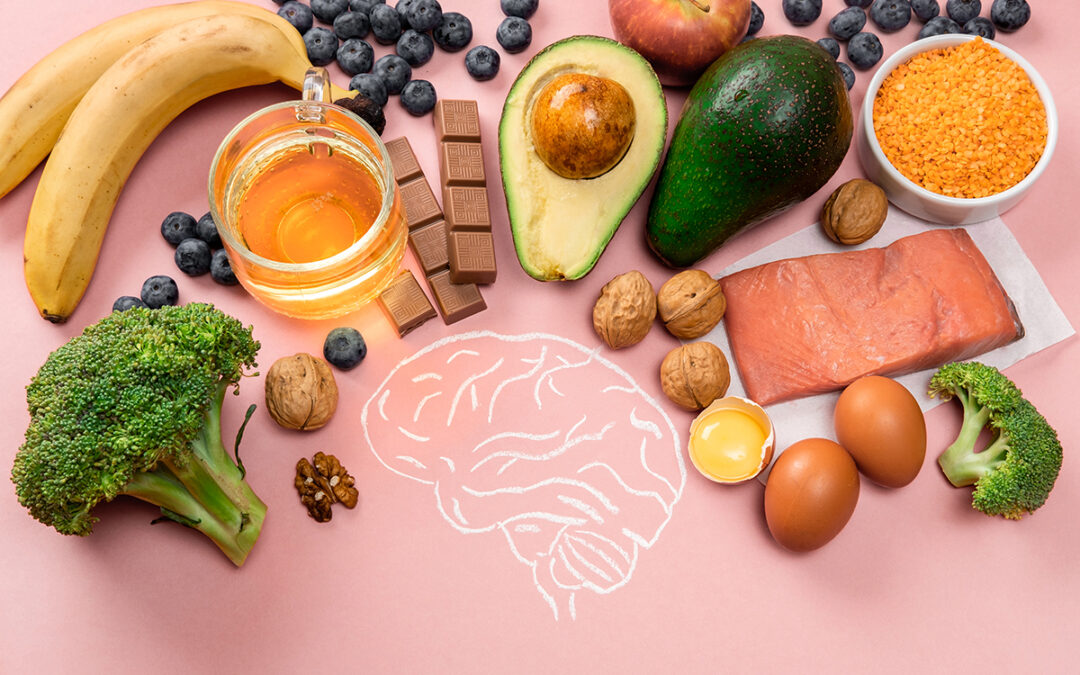As Alzheimer’s disease continues to affect millions of individuals and their families worldwide, the role of nutrition in its progression has become a focal point of scientific inquiry and public interest.
Today, we are joined by seasoned registered dietitian nutritionist, Kim Arrey, and CJAD radio host, Ken Connors, to delve into this critical topic. Exploring the potential connections between dietary choices and the development and management of Alzheimer’s, we aim to uncover the latest research findings and expert insights. In this interview, we will discuss whether specific nutrients or dietary patterns can influence the course of Alzheimer’s, offering valuable information for those seeking to mitigate risk and support brain health through nutrition. Join us as we navigate the complex relationship between diet and Alzheimer’s disease.
This podcast was aired on the Weekends with Ken Connors show on CJAD.
Ken Connors: Kim, Alzheimer’s disease has been in the news a lot this week. The Quebec government announced some plans to help families cope with the demands of this terrible disease. And when we were preparing for our chat today you mentioned that Alzheimer’s disease was in the nutrition news as well. Can you tell us about this?
Kim Arrey: Ken, up until now most of the studies that have looked at nutrition and Alzheimer’s disease have tried to pin point specific nutrients that could help to delay the onset and progression of Alzheimer’s disease. That is why a team of scientists at Rush University Medical Center and Harvard University, led by Dr. Martha Clare Morris developed the MIND diet. This diet is basically a combination of the Mediterranean Diet and the Dash Diet with a few tweaks…like eating blueberries every day. But now a new study has added a new twist to the diet and Alzheimer’s connection. There seems to be a link between Alzheimer’s disease and malnutrition.
Ken Connors: Malnutrition? I am surprised. I associate malnutrition with people who do not have enough to eat. Surely, that is not an issue here in North America!
Kim Arrey: Ken, in the days of people over eating foods that are high in calories and low in nutrients it is very possible to consume lots of calories and not enough nutrients. And what dietitians have noted for many years is that seniors are particularly vulnerable to developing malnutrition. And with Alzheimer’s disease, malnutrition can be linked to the development of the disease and the progression of the disease. The European Society for Clinical Nutrition and Metabolism has determined that malnutrition is the most common side effect of Alzheimer’s disease. A new study, published in Frontiers in Nutrition suggests that malnutrition is tied to the progression of Alzheimer’s disease. This study, which included 266 participants, half who were controls and the other half who were divided into 3 groups: people with normal cognition, people with mild cognitive impairment and dementia. The researchers found that as people progressed from one stage to the other, they became more and more malnourished. The researchers concluded that identifying people who could become malnourished could be beneficial in reducing the risk of developing Alzheimer’s and could influence the progress of Alzheimer’s disease.
Ken Connors: Kim how do you prevent malnutrition?
Kim Arrey: Ken that is a bit of a tough one. As you age, the body seems to have more trouble absorbing nutrients. And often as you get older your appetite decreases. So it becomes more and more important for people to choose nutrient dense foods. But nutrients dense foods are sometimes expensive for people on a fixed income. As well many older adults have difficulty grocery shopping and cooking, either because they have physical limitations or because they live alone and who wants to cook for 1. Another study that was published this month in the American Journal of Clinical Nutrition, called the COSMOS trial found that taking a daily multivitamin delayed cognitive decline.
Ken Connors: Kim are you saying you want people to take a multi vitamin?
Kim Arrey: That could be a good idea for older adult. This multi vitamin supplement does not replace healthy eating but it could be the boost some people with a smaller appetite or who do not absorb their vitamins well need. And the vitamin supplement that was used in the study was one that is commonly available in the drugstore and cost about 20 cents a day so it can be a cost effective way to add nutrition to the diet.
Ken Connors: What about taking something like an Ensure or Boost drink? Or protein shakes?
Kim Arrey: Protein shakes could be good, if you are only missing protein. However, most of them do not contain a balance of other nutrients. Ensure and Boost are formulated to contain a balance of nutrients, similar to a vitamin and mineral supplement. These products could be good for some people, but for other they might replace food. The nutritional drinks fill you up, and that might reduce the amount you eat at your meal, so you could actually end up consuming less nutrients. This is when consulting with your health care team, including your dietitian-nutritionist can help you to determine what is the best plan of action for you or your loved one.

